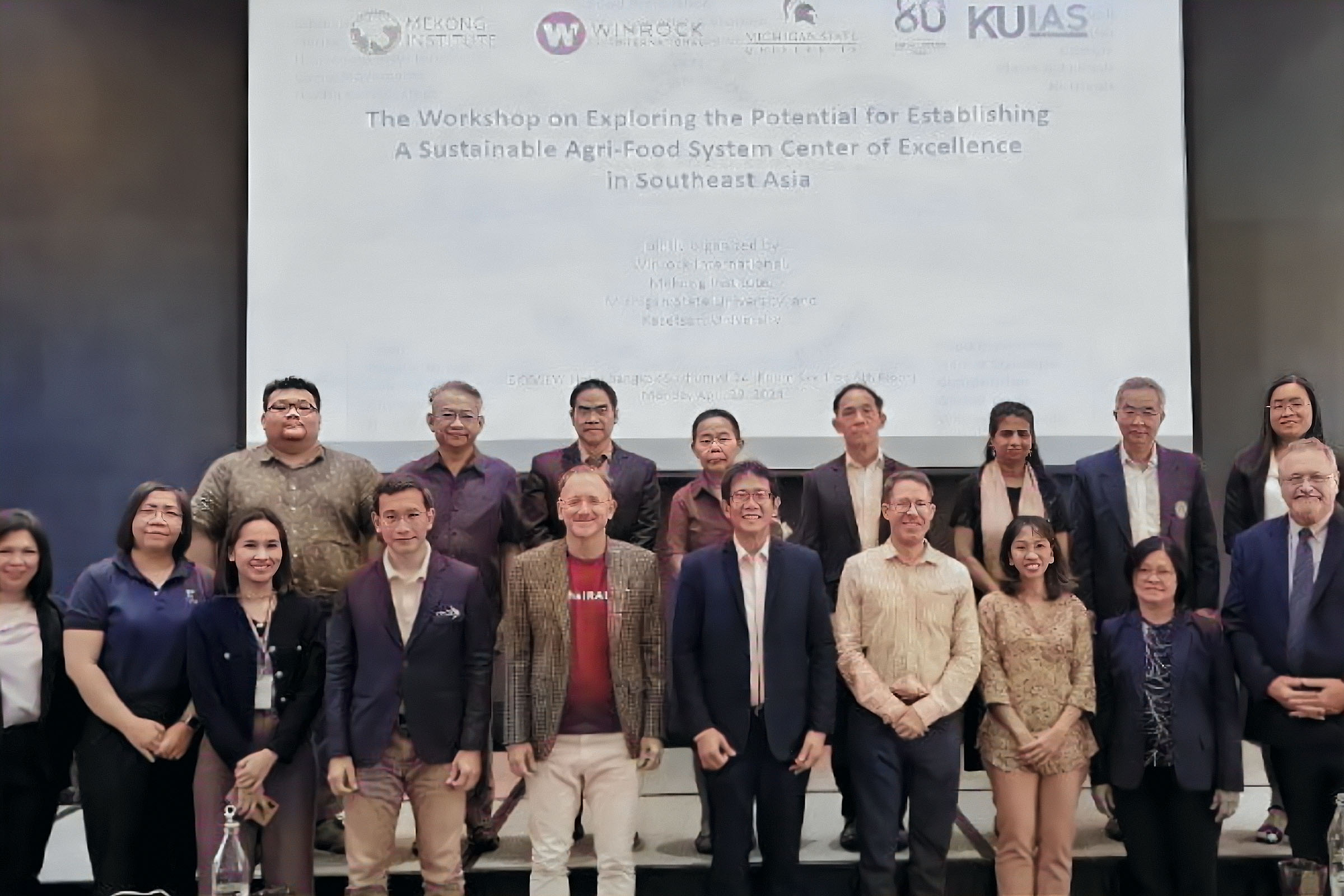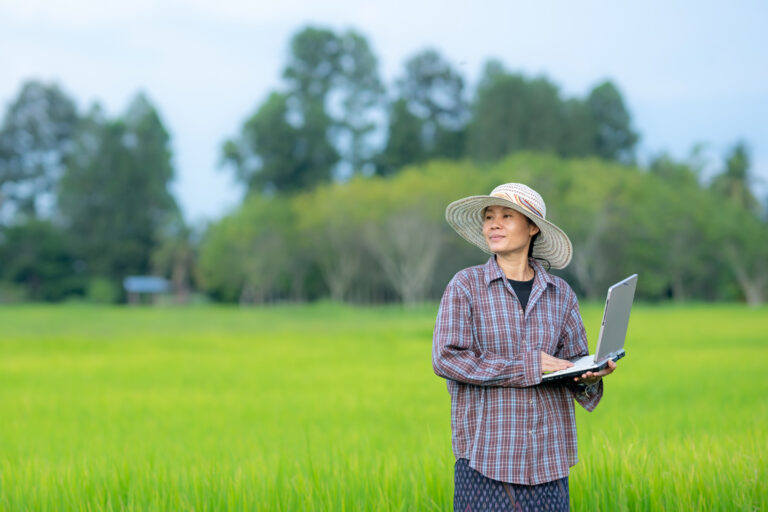
Southeast Asia “center of excellence” in the making: a #thaiRAIN success story
We need to talk about agri-food climate-smart innovations
Southeast Asian farmers are facing the concrete effects of climate change, such as unusual weather, rising temperatures, water shortages, increasing pest infestations and devastating floods.
The region has invested in R&D and innovations for many years, but the results have been unsatisfactory. Crop yield increases have stalled in many countries. Food costs have risen, and the agri-food industry remains a major source of global greenhouse gases.
Adding to the problem, most farmers are aging, and many young people are reluctant to work on farms, resulting in a slow transition from traditional methods to more sustainable and productive practices.
Given these challenges, USDA Thailand RAIN (#thaiRAIN) has recognized the need to promote efficient R&D investment and implementation to support climate-smart innovations (CSi) across the region. It considers the approach of centers of excellence, facilitating collaboration across related agencies and countries in the region. This approach is useful for driving innovations to address the climate change challenges in the region’s agri-food system. These centers of excellence seek to promote collaboration between the public and private sectors, academic institutions, and related agencies in sharing knowledge, market-driven best practices, and experiences to enhance the market for these innovations.
In late April, Winrock International, Mekong Institute, Michigan State University, and Kasetsart University co-hosted a workshop titled “Exploring the Potential for Establishing a Sustainable Agri-food System Center of Excellence in Southeast Asia,” which concluded that the region does indeed require a center of excellence approach to accelerate the adoption of sustainable practices and innovative solutions that can address the challenges posed by climate change in the agri-food system. It could be established in each regional country or as an entity that operates across the region.
Fostering CSi collaboration
Apart from improving productivity to counter stress caused by climate impacts, CSi must aim to reduce GHG emissions at all stages of the agri-food system to slow global warming.
Prof. Duncan Boughton of the Department of Agricultural, Food, and Resource Economics at Michigan State University pointed out that stronger collaboration between farmers, agribusiness, and policymakers is vital to align markets and policies and to reward the adoption of CSi. “Science-driven innovation has not kept up with the multiple and interrelated challenges faced by the agri-food system,” Boughton said. “Scientists in the private and public sectors have improved tools: genetic improvement methods, new digital applications, and the potential to accelerate innovation through AI, but additional gains can be achieved by aligning market incentives and public policies to reward climate-friendly innovations.”
Businesses are increasingly crucial in promoting CSi throughout the agri-food system value chain, from input manufacturing to farm production, value-added services, and post-consumer waste management.
The need for researchers to cooperate more closely with the public sector and businesses highlights why the concept of centers of excellence is important. These centers of excellence will be a key mechanism for facilitating collaborations among related agencies to explore innovation opportunities, test inventions and build economic models to distribute CSi rapidly.
“…additional gains can be achieved by aligning market incentives and public policies to reward climate-friendly innovations.”– Prof. Duncan Boughton, Michigan State University.
Closing the region’s knowledge gap
Additionally, Assoc. Prof. Witsanu Attavanich of Kasetsart University, ThaiRAIN’s team lead for the CSi evidence panel, who was recently appointed a member of Thailand’s National Economic and Social Development Council, stated that much research has been done in the region on climate change and the agri-food sector, but it is scattered among different agencies, research centers, and universities.
The development of centers of excellence will help resolve Southeast Asia’s knowledge management gap for handling climate impacts and promote the scale-up of these innovations, bringing them from the research space into practical use in the market.
Moreover, centers of excellence will serve as a platform for coordination with organizations at the international level, streamlining work processes and promoting the exchange of ideas and best practices in the region.
“These centers of excellence will help us identify existing research and what’s missing. We do not need to start from scratch. If there’s existing research, we can validate and expand it. This will help manage all research methodically across different agri-food supply chains and among countries in the region,” Witsanu said.
“The workshop has agreed that there is an evident need for such centers of excellence in Southeast Asia to promote R&D and innovations while facilitating farmers’ access to the market. We believe that these centers of excellence should be practical in meeting the needs of their users,” he added.
The region’s centers of excellence can either operate alongside USDA’s planned International Climate Hub, contributing to each other’s operations and sharing knowledge, or operate under the USDA’s International Climate Hub.
“These centers of excellence will help us identify existing research and what’s missing. We do not need to start from scratch.”– Assoc. Prof. Witsanu Attavanich, RAIN’s lead of the CSi evidence panel.
Related Projects

